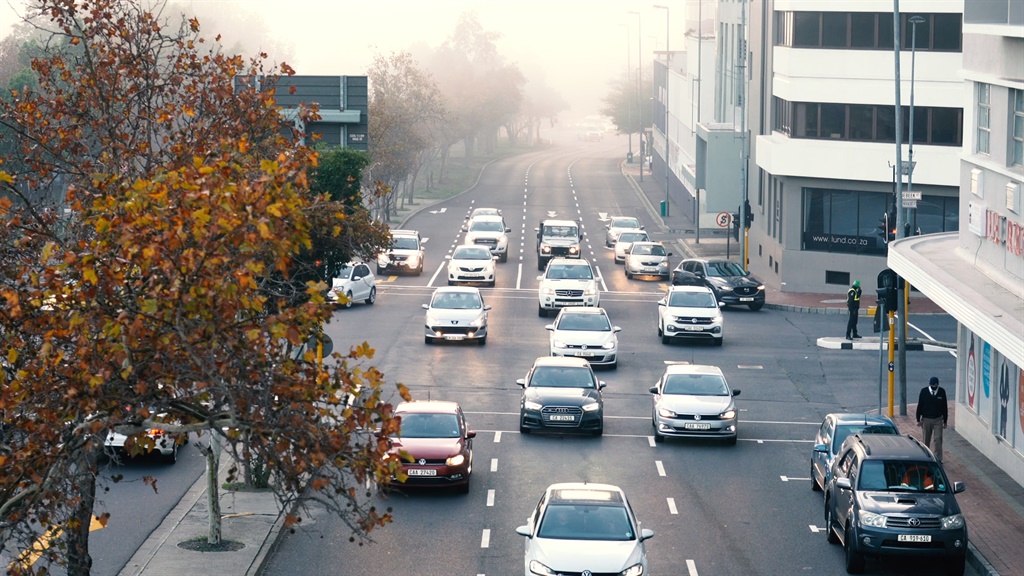


Signs of life returned to the Cape Town CBD on the first day of lockdown Level 3.
Aljoscha Kohlstock/News24
It almost feels like the world is back to normal, doesn’t it?
I’ve seen a great many references to this thing we are calling “the new normal” and I admit I am guilty of misusing this term.
Seeing my son return to school this week wearing a mask and social distancing from his friends in a spaced out classroom did not feel completely normal.
But there was a sliver of normalcy in returning to a familiar schoolyard and seeing familiar faces, albeit from the cheeks up. It certainly felt more normal than attending class on Zoom and learning on a screen.
But driving through the Joburg CBD this weekend, it certainly appeared that everything was back to normal with scenes reminiscent of the pre-Covid-19 era. Pavements swarmed with people showing scant regard for social distancing.
The only thing that was a giveaway of this dystopian reality we find ourselves in was the face masks. But in truth, most were worn like adornments or necklaces, discarded below the chin, as the wearer grew frustrated at the discomfort of having their mouth and nose covered for a prolonged period of time.
With the downgrade to Level 3 of the lockdown on 1 June, much has returned to a semblance of normalcy. Retail is open for trade and all except barbers, hairdressers and beauticians have thrown open their doors in desperate relief. Restaurants are doing their best to eke out a living with deliveries and pick-ups.
Shopping malls are busy. People are getting out there and getting on with their lives. This is absolutely necessary for us to get the wheels of the economy turning again and getting money into the pockets of those who need it most.
But it’s also easy to forget that there’s an invisible virus stealthily lurking about. Just because you can’t see the contagion, doesn’t mean it has disappeared.
This may seem like a simplistic and obvious point to make, but you would swear people have lost all sense of logic as the hard lockdown has departed.
As the experts have consistently been warning us, we need to brace ourselves for the peak. It is still coming and it will do so with a vengeance. We cannot afford to grow impatient with being in isolation or with not being able to socialise.
This past weekend social media was rife with posts about people throwing parties and hosting events. Not only is this downright illegal, it’s blatantly disrespectful to those who are abiding by the rules and even more so, to those medical workers on the front line.
It’s selfish to act like people are not dying from this virus. We all have to exercise some self-restraint.
With many returning to work, it’s also easy to ignore those sectors that have seemingly been forgotten. I’m talking about those in what is being called the early childhood development (ECD) sector.
An estimated 30 000 nursery school and crèche owners are at risk of closing down permanently as they still have almost no direction about when they can open again. Minister Lindiwe Zulu has been absent in her leadership in this department.
On Commissioner Street in the Joburg CBD, I saw a second floor crèche, its glass windows painted with cartoons and the alphabet. I wondered how many others like that will cease to exist and who will look after our small children. ECDs should have opened as an essential service when parents began to return to work so that kids could be kept in a safe, nurturing environment.
Don’t forget about all those working in the hair and beauty sector, so many of who are single mothers supporting networks of families on their skinny, solitary salaries. Nail technicians and hair stylists have been at home without earning a cent for nearly 80 days. It is completely naïve to think they won’t get out and drive black market trade in order to put food on the table.
We also can’t ignore all those waitresses, cooks and barmen who are without an income, watching from the sidelines as others are able to work.
It may feel as though we are returning to “normal” but that is just not true for a great deal of the country. Things have irrevocably changed and will remain this way for some time to come.
Initially there was a sense that these changes would be temporary, lasting just a few weeks or maybe months. But now we are coming to terms with the fact that this situation is chronic.
This means that we have to get used to living in a socially distanced society, washing our hands obsessively, wearing masks and limiting our personal socialising. It’s not something we necessarily want to hear or accept, but it’s essential that we appreciate it.
If we throw off the shackles of lockdown with gleeful abandon, we will be putting ourselves and the vulnerable around us at great risk. This fight is far from over.
Instead, we have to batten down the hatches and brace ourselves for the peak that is looming on the horizon.

